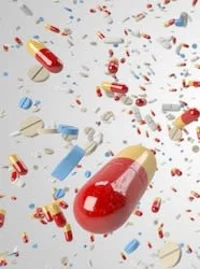Over time, I think we are going to recognise that we can’t continue to develop or introduce new technology. Because of cost we are going have to be satisfied with the technologies that we have. I think the future of intensive care will be smaller as people get healthier. They are going to be less likely to come into intensive care units and more likely to die at home, which is probably a good thing over time.
I envision a future in which there are not more ICU beds but fewer ICU beds. These will care for sicker patients than at present, but using the same technology in smarter ways. The story of technology in healthcare is that costs have been driven up but outcomes for patients have only modestly improved. A few technologies such as mechanical ventilation and dialysis have dramatically improved outcomes, but the rest improve outcomes at the margins. I would like to see an ICU that is smaller, that cares for sicker patients, that emphasises inter-professional and family centred care but in a human way that is less reliant on fancy bells and whistles, is much more efficient and more cost-effective.
What are your key areas of interest and research?
The organisation and management of intensive care: How do we organise and manage the intensive care unit to best deliver practice and save lives?
What are the major challenges in your field?
The major challenges in ICU organisation and management right now are getting better data sets that are bigger and will help us to more granularly understand the role of management and the perspective of the team. Now we rely on surveys, which unfortunately are a flawed tool to understand how the team functions. They suffer from poor response rates and they can only measure a limited number of factors. So we need innovative ways to measure team function that transcend surveys.
What is your top management tip?
As a manager I have found that when you are uncertain about
a potential hire go with your gut and don’t hire that person. Hire the most
dynamic and the best people you can find.
Be open to new ideas and recognise that the manager does not always have
all the answers and that the frontline employees are often in the best position
to come up with innovative solutions—this is true whether in the ICU or in my
research lab.
What would you single out as a career highlight?
My career highlight was when one of my mentees, Meeta Prasad Kerlin, published a paper in JAMA that looked at the relationship between protocols and educational outcomes (Prasad et al. 2011). The study asked if using protocols impairs education, and she found that it didn't. It was such an immense joy to see one of my mentees succeed in such an amazing way. It made me realise that what I do is not only about my own science but about passing on the tools of science to the next generation.
If you had not chosen this career path you would have become a…?
Chef. I have loved cooking my entire life. I cook almost every day for my family and I would love to be a chef. I get the best of both worlds, being a clinician who takes care of sick patients, and I get to do research and I get to cook.
What are your personal interests outside work?
As well as cooking I like to ride my mountain bike. There is a lot of mountain biking in Pittsburgh, which is a very hilly area. Otherwise the usual—reading, spending time with my family ,and cooking for my family. No reward is as great as cooking something for the people you love.
Do you have a favourite quotation?
One of my favourite quotations is work related, and it’s by W. Edward Deming, the organisational psychologist: “In God we trust, all others bring data.”
I love that quote because it’s how I live my life in ICU: just because we think something is true doesn’t mean it is true. We need to prove it’s true with data and it speaks to the value of numbers and the value of rigorous critical analysis in all our quality improvement activities. One of my greatest frustrations is when people do quality improvement and don’t evaluate its impact, and they just say it must have positive impact because they think it did. We should do better evaluation every step of the way and that is what this quote reminds me of.
References:
Prasad M, Holmboe ES, Lipner RS et al. (2011) Clinical protocols and trainee knowledge about mechanical ventilation. JAMA, 306(9): 935-41.







